
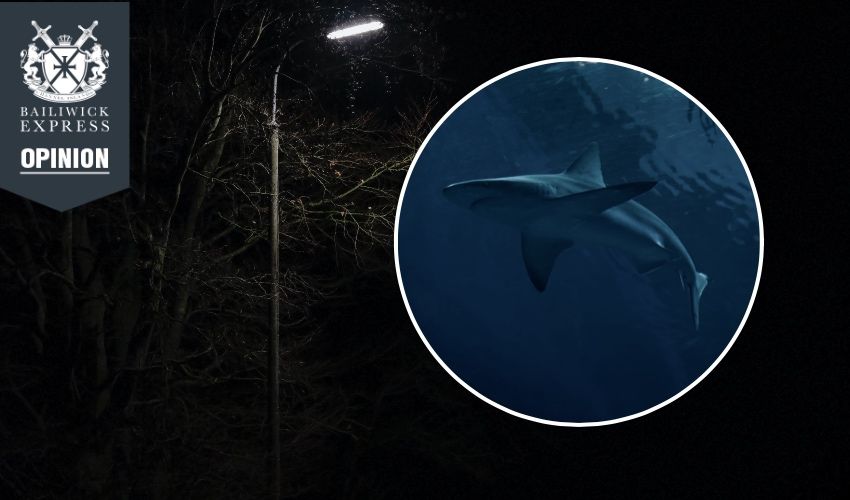

Last Saturday [6 August] a local woman posted on social media, to tell her story, alleging that she had been sexually harassed while walking alone in town. Understandably, the post sparked outrage and concern from islanders, who shared the woman's story in the hopes of raising awareness.
Even more sad than the story itself, is the fact that it is not the first, either locally or further afield. In the last year alone, there have been five high-profile cases of women being murdered by strangers as they walked alone in the UK.
For women in particular, each case has validated the question "why are women afraid to walk alone?". While the answer may seem simple, (based on a mountain of statistical evidence), it is often tossed like a grenade into a minefield of a gendered violence debate, exploding on impact while countless other inconvenient truths detonate around it.
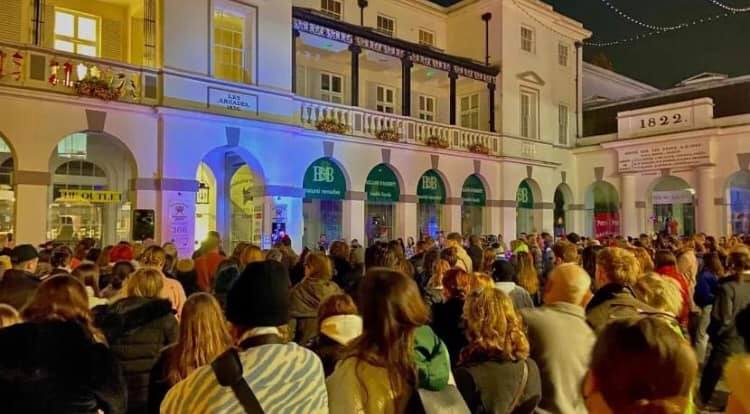
Pictured: The Guernsey Women's Collective organised a "Reclaim These Streets" protest and vigil for Sarah Everard last year.
• Sarah Everard being kidnapped, raped and murdered by a stranger while she walked home alone in March 2021 is why.
• Sabina Nessa being murdered by a stranger while walking alone to meet a friend in September 2021 is why.
• Bobbi-Anne McLeod being kidnapped and murdered by a stranger while waiting for a bus alone in November 2021 is why.
• Ashling Murphy being murdered by a stranger while jogging alone in January 2022 is why.
• Zara Aleena being murdered by a stranger while walking home in June 2022 is why.
• 97% of women experiencing harassment or assault in their lifetime is why. (UN Women UK survey)*
• Over 70% of women being sexually harassed in public spaces is why. (UN Women UK survey)*
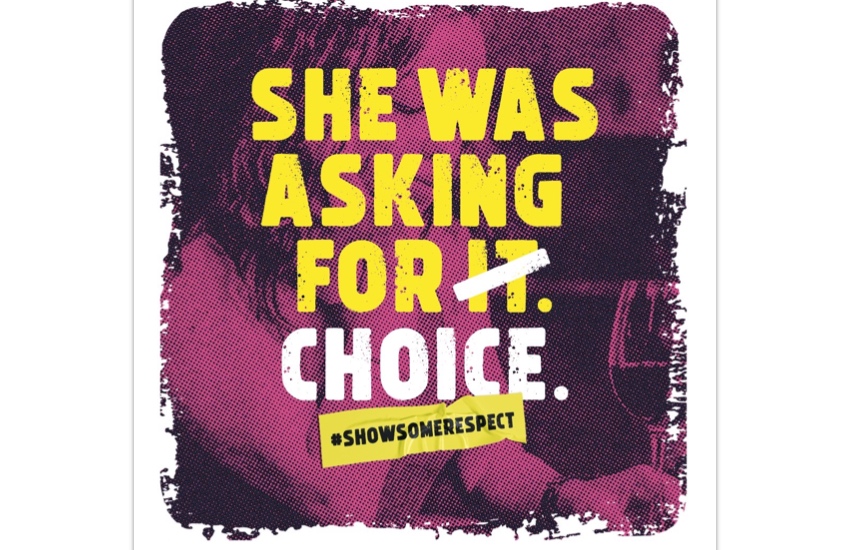
Sarah Everard was murdered by serving MET police officer, Wayne Couzens, in March last year. Sarah was not the first and was not the last. Her story struck a chord with the public, in particular with women, because Sarah had done everything “right”.
Sarah had followed all the unspoken rules that women follow in attempts to keep themselves safe when they are walking alone. She was dressed “appropriately”, she was in a well-lit area, a friend knew where she was, and she was in an area she knew. She did what we all do, thinking it will be enough to keep us safe. She was not safe.
Women took to social media to share their experiences of being afraid to walk alone, with one twitter user commenting: “The saddest thing about stories of women feeling unsafe walking alone, is that every woman has one.”

Pictured: The BE LADS campaign message was used by a construction company in Ireland to train more than 1,000 of their male-dominated staff
As more and more women started sharing their experiences in the wake of a case which irrefutably validated their fears, the hashtag “notallmen” started trending. Men felt as though they were being vilified.
The men sharing the hashtag seemed to be under the impression that all women believed that all men are kidnappers, rapists and murderers. That all women were accusing all men of being legitimate threats. That all women were blaming all men.
I saw this conversation play out on social media and, shortly after, in conversations with male colleagues, friends, relatives and peers. I would listen to men tell me that women don’t need to be afraid, then, in the very next breath, say that they wouldn’t let their sister/girlfriend/wife/mother walk home alone.
Have you have ever told a woman to "get home safe" when she's walking alone? If so, do you ever think about why she wouldn't? Aside from accidents, what are you imagining would be a reason why she may not get home safe?
Are you worried she might not be safe from other women? From a dog? From a poltergeist? From a pulmonary embolism?
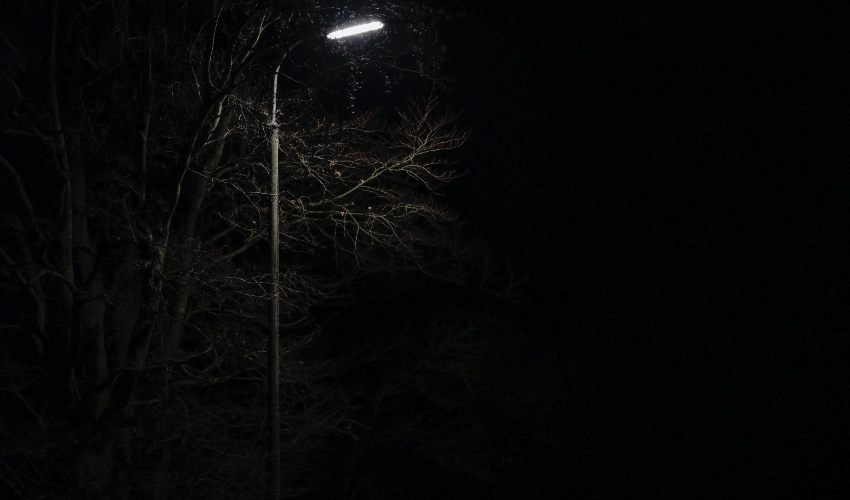
Pictured: If you say "get home safe", have you ever thought about what may make someone unsafe?
While these may well be what you are concerned about when you tell a woman to "get home safe", statistically (gov.uk sexual harassment survey*), the biggest threat to a woman walking alone, is a man.
Time after time, I have had conversations which have highlighted the disconnect between some men believing women have no reason to be afraid, and yet having concerns that their female relatives/friends would be unsafe walking alone.
Desperate to do something, anything, to help bridge the gap and bring the genders together on the issue, I launched the BE LADS campaign, with "BE LADS" being an acronym for simple steps men could take to let women know that they are not threats.
I have presented the campaign in school assemblies, to government committees, at a public vigil, to local community groups and on global webinars. It has been added to the school curriculum in Guernsey. It was delivered as training to more than 1,000 staff in a construction company in Ireland, being well-received by the male-dominated workforce. The progression of the campaign has continued to validate the need for its existence.
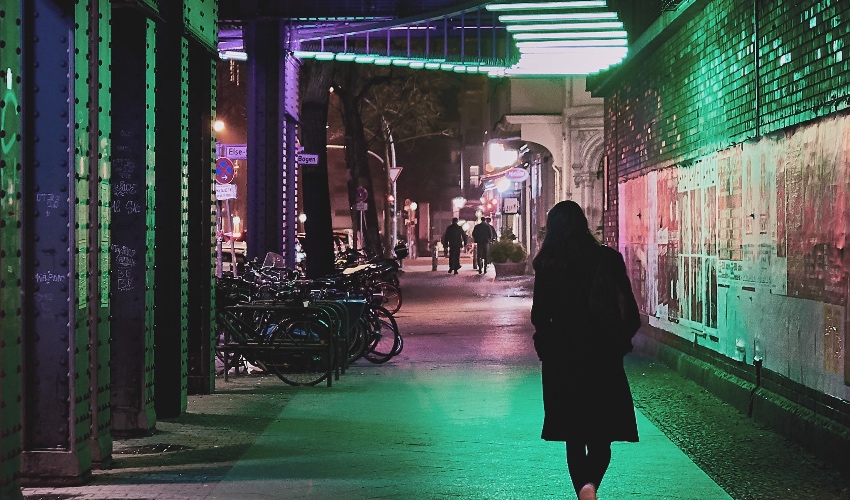
Pictured: According to a UN Women UK survey, 80% of women will be sexually harassed in a public place.
The biggest message from the BE LADS campaign is that women know not all men are threats. Women are not accusing all men. Women do not want to tar all men with the same brush.
What needs to be clearly understood is that, statistically, 97% of women will be harassed or assaulted in their lifetime. There is no way for a women to know who her assailant will be, when it will happen or where it will happen. She just knows it is extremely likely to happen at some point.
A teacher at Elizabeth College recounted how he had relayed an example of man-eating sharks that he had heard, to try and convey this message to male students. I have since adapted the example and relayed it when trying to explain the issue.
I will share it again now, in the hope of putting the issue into perspective for anyone who may not understand why women feel afraid to walk alone:
There are over 500 species of shark. A dozen species have been involved in attacks of some kind on humans. Four species are categorised as man-eaters.
Imagine you know that you have a 97% chance of being attacked by a shark in your lifetime.
Imagine five people had been eaten by sharks in unprovoked attacks within the last year.
Now imagine you are in the sea, and you see a shark fin comes towards you.
Would you wonder if the shark coming towards you is dangerous? Would you try to work out whether it is safe for you to stay in the water?

Pictured: It would be difficult to tell whether a shark fin in the water belongs to a man-eater or not.
For this example to be more closely aligned with the truth, you would need to imagine that shark fins continue to come towards you throughout the entire time you are in the water. Imagine how tiring it would be to assess whether each fin was going to pass you by and leave you safe, or not. It would be far easier if a "safe" shark could give you a signal which would alleviate your fears.
While it is somewhat frustrating that the issue needs to be adapted into a more relatable example than the truth, it is undeniably effective in being easily understood. It would be nice if, one day, I could simply say "women are afraid to walk alone because, statistically, they are unsafe", and that would be accepted without debate, but we are not there yet.
It seems that some men (not all men) get stuck on the thought that, because they are not threats, women will not consider them to be one. I would urge these men to instead consider themselves to be the harmless shark; when all a woman can see is your fin, she has no way to know if you are dangerous.

Pictured: Sarah Everard was kidnapped and murdered by a serving MET police officer as she walked alone in London.
I have lost count of the number of times, when discussing the issue of women's safety when walking alone, the other person has raised a variation of: "What about men being assaulted, what about men being attacked, what about men being murdered, what about women being perpetrators?"
For absolute clarity and the avoidance of any/all doubt:
Men can, and do, experience harassment and assault when walking alone.
Men can be, and are, murdered by strangers when walking alone.
Women can, and have been, perpetrators.
Men can, and have been, victims of harassment, assault and more.
Those facts do not invalidate these ones:
Most, not all, victims of assault and harassment are women.
Most, not all, perpetrators are men.
Most, not all, murders of women (and men) by strangers are committed by men.
Why are women afraid to walk alone? The answer comes down to odds; odds which are disproportionately stacked against women.
*For anyone wondering whether UK statistics are applicable to women in Guernsey, I would urge you to talk to any woman in Guernsey and ask them.